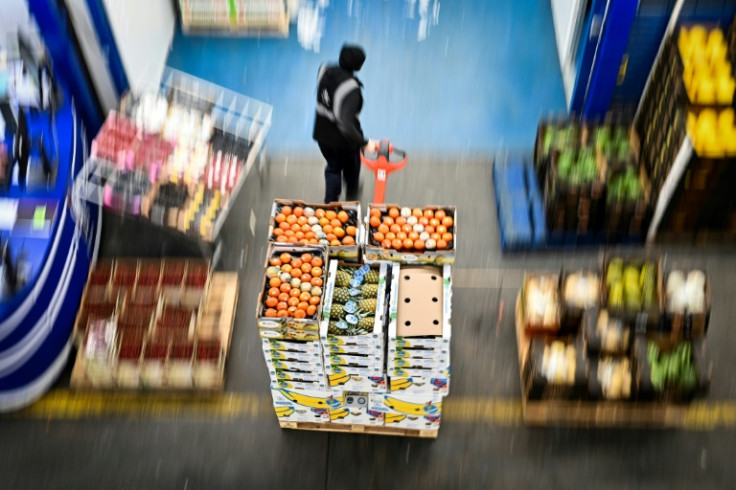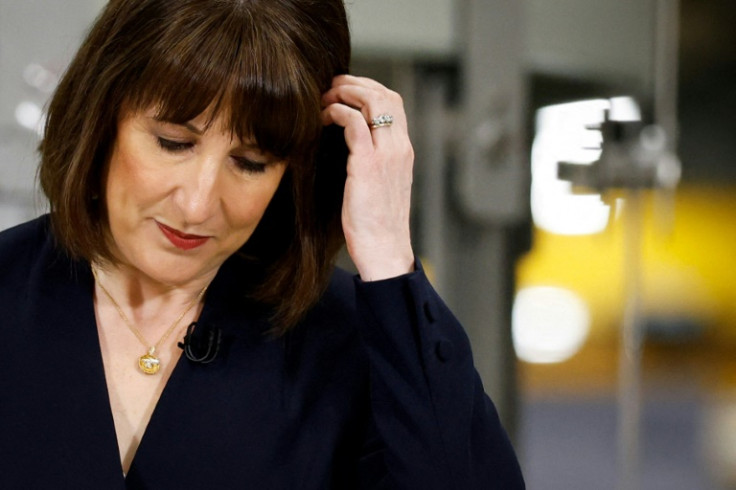UK Annual Inflation Jumps More Than Expected
In February, the BoE cut its key interest rate by a quarter point to 4.5 percent

Britain's annual inflation rate rose more than expected last month, official data showed on Wednesday, adding pressure to the Labour government, which is also grappling with sluggish economic growth.
According to the Office for National Statistics (ONS), the Consumer Prices Index increased to 3.0 percent in January, up from 2.5 percent in December. This unexpected rise poses a significant challenge for Prime Minister Keir Starmer's centre-left government, which is attempting to address the dual issues of rising prices and weak economic growth.
'The rise was driven by air fares not falling as much as we usually see at this time of the year,' explained Grant Fitzner, chief ONS economist. He further noted that food and non-alcoholic drink prices had increased after declining in the same period last year, with particular rises in the cost of meat, bread, and cereals.
Another factor contributing to inflation was the rise in tuition fees at private schools, following the government's decision to impose new taxes on them in its maiden budget. The increase in school fees at the start of the year placed additional financial strain on households already dealing with higher living costs.
While the latest inflation figure moves further away from the Bank of England's (BoE) two percent target, analysts suggested it remains broadly aligned with the central bank's forecasts for 2024. However, the higher-than-expected rise has implications for monetary policy.
'While it's not going to set off a cacophony of alarm bells at the Bank of England, it's not going to make them any more enthusiastic about rate cuts in the immediate future either,' said Sarah Coles, head of personal finance at Hargreaves Lansdown.
Finance Minister Rachel Reeves responded to the inflation figures by reaffirming her commitment to improving household finances. 'Getting more money in people's pockets is my number one mission,' she stated. 'That's why we're going further and faster to deliver economic growth.'
Earlier this month, the Bank of England downgraded its forecast for UK economic growth and warned that inflation could rise more than previously anticipated in the coming months. The central bank cited global risks, including US tariff threats and weakening business confidence in the UK, as key factors behind its revised projections.
In February, the BoE cut its key interest rate by a quarter point to 4.5 percent—the third such reduction in six months. However, Governor Andrew Bailey has cautioned that the central bank would adopt a 'gradual and careful' approach to any further rate cuts.
Meanwhile, new figures released a day before the inflation report showed an acceleration in UK wage growth. This could complicate the BoE's task of controlling inflation, as higher wages risk fuelling further price increases.
'Should the spike in inflation peak at a level above expectations, or if the increase is too prolonged, then the Bank could find itself with a nasty headache,' warned Richard Carter, an analyst at Quilter Cheviot.
UK inflation had previously surged above 11 percent in October 2022—the highest level in more than four decades—driven by the Russia-Ukraine war, which disrupted energy and food supplies and pushed prices sharply higher.

© Copyright AFP 2025. All rights reserved.






















